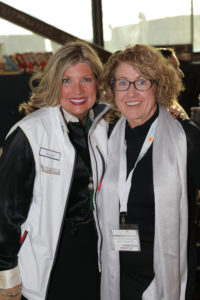By Beth Buehler
When you see CMP (Certified Meeting Planner) behind a meeting professional’s name, it’s essentially an internationally recognized badge of excellence and symbol of credibility, much like an accountant earns a CPA.
Having a certified meeting planner or supplier on your team (staff or hired for a specific gathering) helps provide peace of mind that this person has met qualifications for certification that are based on professional experience, education and a rigorous exam. Just like similar designations in other professions, CMPs must recertify every 5 years unless they meet the requirements of emeritus status
Personally, I like to have CMPs on my editorial advisory board for Colorado Meetings + Events and Mountain Meetings magazines, and we have several CMPs who have been selected by the advisory board for induction into our Hall of Fame, which is no surprise as it typically means they are at the top of their game in the meetings and events world. And, I’m happy to report that Colorado has several CMPs based in the state, including many who are members of Destination Colorado.

Deana Mitchell, CMP, third from left, is the owner of the destination management company Realize Colorado and serves on the Destination Colorado board of directors.
CMP Overview
The Certified Meeting Professional program was launched in 1985 to enhance the knowledge and performance of meeting professionals, promote the status and credibility of the meeting profession, and advance uniform standards of practice. Since then, the Events Industry Council has certified more than 11,000 meeting professionals in 55 countries around the globe.
The Certified Meeting Professional healthcare subspecialty (CMP-HC) was launched in 2014 to address the needs of a growing segment of CMPs who manage meetings in the healthcare industry. This credential is designed to validate CMPs who have demonstrated a superior understanding and mastery of the specific regulations, laws and best practices that must be followed when conducting a healthcare-focused meeting.
Reasoning behind the CMP
The CMP exam for the certified meeting planner was developed and is maintained by meeting professionals from all over the world who volunteer their time to ensure that the program reflects the best practices in the meeting management field. The CMP community represents every sector of the industry from corporations and associations to government and nonprofits.

Ellen Collins, CMP, left, works for Vail Resorts Meeting and Events and volunteers on the Destination Colorado board of directors. Photo by Josh Gold Photography.
The CMP aims to increase the professionalism of meeting management through five main approaches.
- Identifying a comprehensive body of knowledge in the meeting management profession
- Promoting industry standards, practices and ethics;
- Stimulating the advancement of the art and science of meeting management;
- Increasing the value of CMPs to their employers; and
- Maximizing the value received from the products and services provided by CMPs.
How to find CMPs
Using the Events Industry Council’s online directory of CMPs, you can input meeting professionals’ names and see if they have the certification and who they work for.
Also, if you are communicating with specific meeting professionals, the designation if earned is highly likely to be mentioned on their business cards, in email signatures and LinkedIn profiles.
We try to mention the credential with the names of people we are interviewing for the magazines or are featuring in our various sections. It takes hard work and expertise to land the CMP, and I like to recognize this and the fact that our sources are credible. However, it’s also important to mention that there are many excellent meeting professionals who haven’t gone down the CMP path or that have pursued other certifications.
Yet, the CMP represents the standard of excellence in today’s meetings, conventions and exhibitions industry and now you know what it means!
Beth Buehler is editor of Colorado Meetings + Events and Mountain Meetings magazines, has planned numerous meetings and events and enjoys exploring Colorado.
